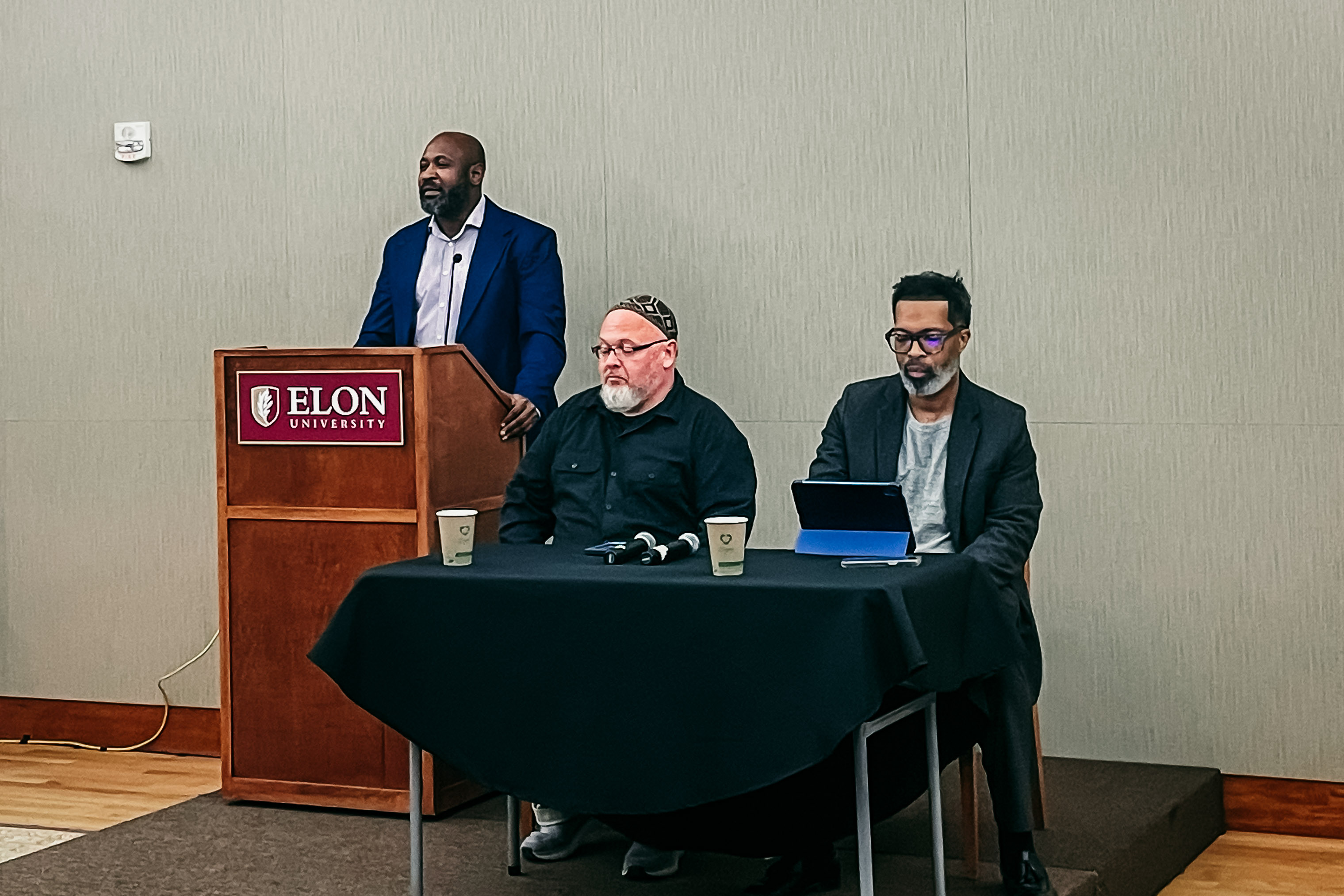The third annual symposium provided education and engagement around the legacy of W.D. Mohammed
Students, faculty, and staff gathered on Nov. 14 for a symposium to honor the legacy of Imam W.D. Mohammed, the son of the Nation of Islam leader, Elijah Muhammed, in the McBride Gathering Space of the Numen Lumen Pavilion.
For the third year in a row, Muslim Life at Elon, The Truitt Center for Religious and Spiritual Life, and the Center for the Study of Religion, Culture, and Society co-sponsored this event, which provides space for education and engagement around the legacy of W.D. Mohammed.
At his father’s passing in 1975, W.D. Mohammed was elected leader of the Nation of Islam. Imam Mohammed brought his community into dialogue with the global Muslim community by moving from a black nationalist theology to what he called “Islam proper.” It is estimated that 500,000 followers embraced Islam under the leadership of Imam Mohammed.
Associate Chaplain for Muslim Life Imam Shane Atkinson spoke about how the teachings of Mohammed inform his antiracist work. “Imam Mohammed named that oppression not only harms the oppressed, but the oppressor as well,” Atkinson said. “We lose part of our own humanity when we participate in the oppression of any member of the human family.”
Imam Salahuddin A. Muhammad, one of the speakers at the symposium, shared how Imam W.D. Mohammed stressed that one could be fully American and fully Muslim at the same time. He encouraged participation in politics to effect positive change in American society. While Imam Mohammed stressed patriotism, he also centered the right to life, liberty and the pursuit of happiness as espoused in the Declaration of Independence.
Fatmata Bah, vice president of the Elon Muslim Society, explained that for her, the event was about the importance of unity and inclusivity between all members of society, regardless of racial or religious background. Bah also walked away thinking about the importance of intentional interreligious work. “The event also highlighted the significance of interfaith dialogue,” she said. “To move forward as a society, diverse groups must attempt to understand one another through dialogue and other forms of interactions.”
For the students, faculty and staff who attended, the evening was an educational experience that they won’t soon forget.
“W.D. Mohammed was one of the most important twentieth-century religious leaders in the US,” said Brian Pennington, Director of the CSRCS. “It is important that we honor that legacy, recognize his ongoing impact on North Carolina, and expose our students to his transformational thinking.”



